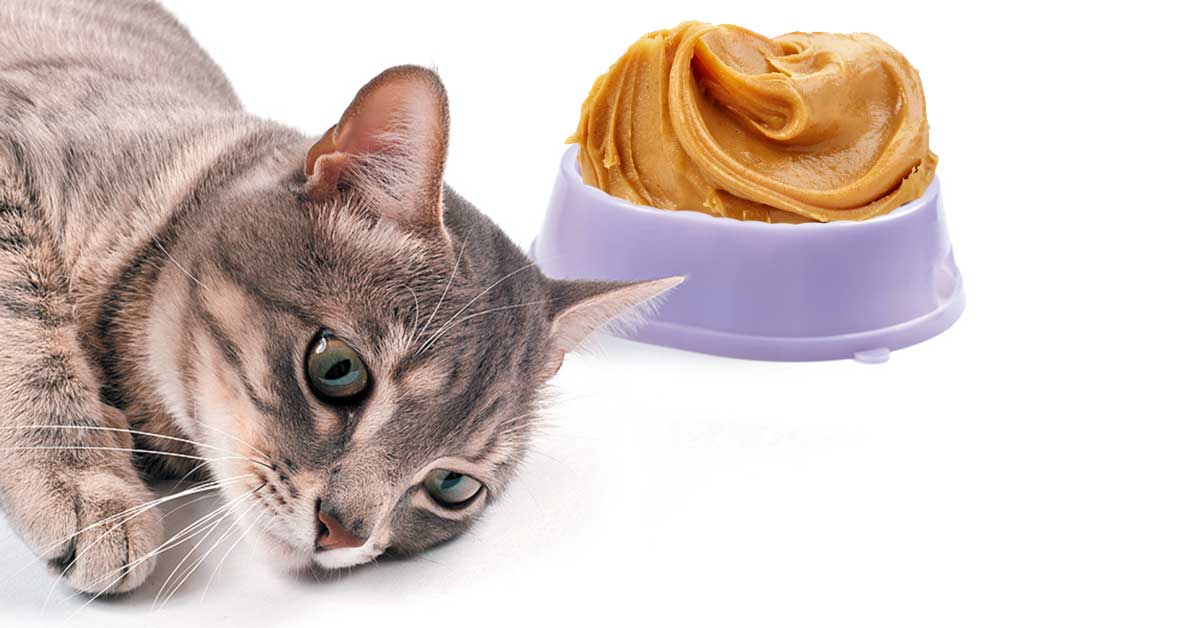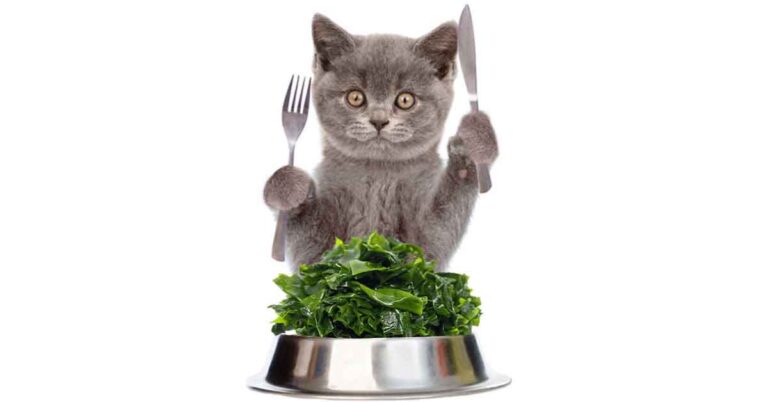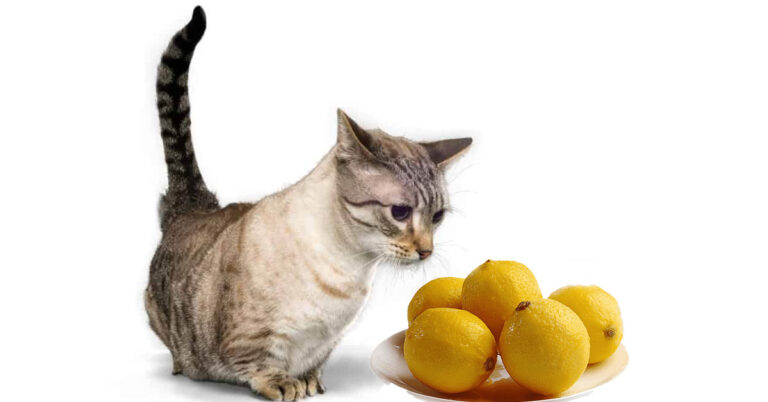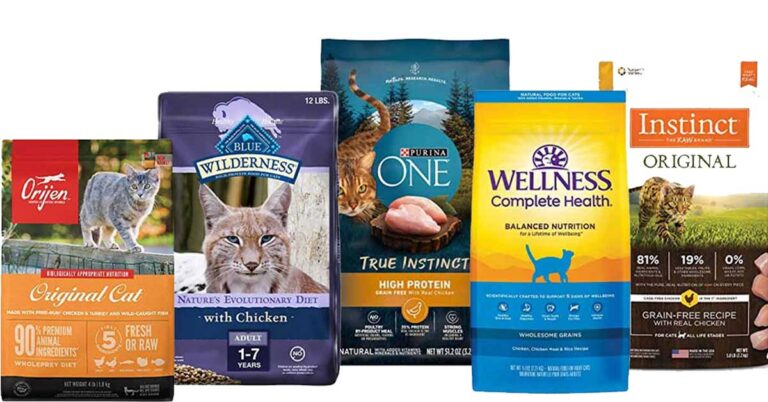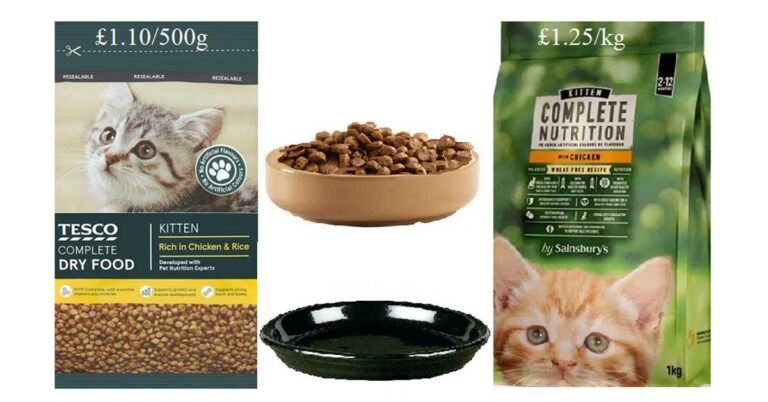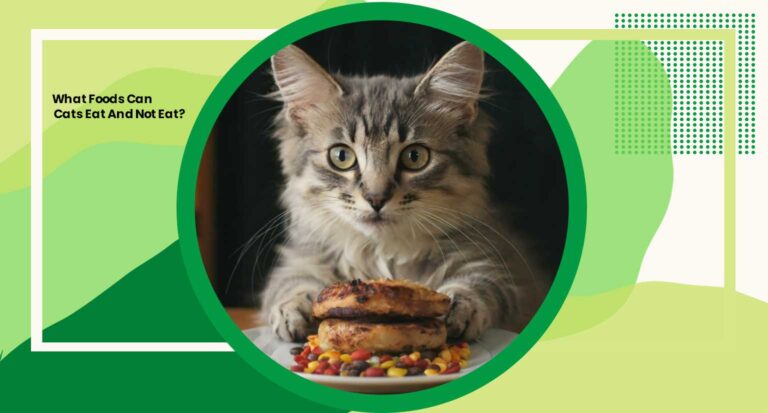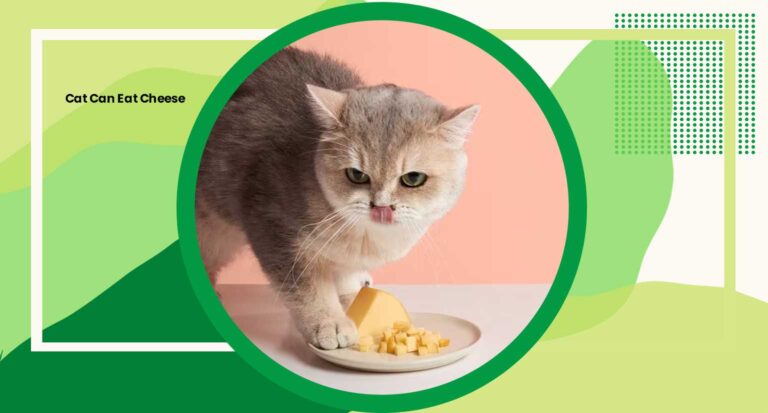Can Cats Eat Almond Butter?
In the United States, pet parents often treat their feline friends with a wide variety of human foods. As cat owners, it’s natural to wonder about sharing even the most unlikely delicacies with our companions. One question that frequently emerges among pet enthusiasts is: can cats eat almond butter?
Almond butter, known for its high nutritional value, is a popular food among health-conscious humans. It’s packed with healthy fats, vitamin E, and offers a myriad of health benefits. But does this mean it’s a good idea for our furry friends? Before you offer a spoonful of this creamy delight to your cat, it’s essential to understand the potential health risks and benefits. Let’s delve deeper to unravel this mystery.
Can Cats Eat Almond Butter?
While almond butter is a healthy snack for humans, the story might be different for your feline companions. Cats, known as obligate carnivores, rely primarily on animal protein for their nutritional needs. Therefore, foods like almond butter, derived from plant sources, aren’t necessarily beneficial for their diet.
Small amounts of almond butter might not pose a health risk to most cats. Still, it’s important to remember that it contains a high-fat content, which could lead to health issues like weight gain and digestive problems if consumed in large amounts. Besides, there’s a risk of an allergic reaction, even though it’s rare. Almond butter is also a potential choking hazard for cats due to its sticky texture.
It’s worth noting that almond butter differs from whole almonds or bitter almonds, which contain cyanogenic glycosides, a cyanide compound that can be toxic to cats. Thankfully, these harmful compounds are not present in almond butter, especially those made for human consumption.
Bottom line? As a cat owner, it’s always better to err on the safe side. Occasional treats of almond butter in tiny amounts might be alright, but it shouldn’t become a regular part of your cat’s diet.
Almond Butter, Almond Milk, and Whole Almonds: The Differences
Understanding the differences between almond butter, almond milk, and whole almonds is essential to make informed decisions about your cat’s diet. Each type of almond product has different properties that may impact your feline’s health differently.
Almond Butter
Almond butter is a high-fat food made by grinding sweet almonds into a paste. Its thick and sticky texture poses a potential choking hazard for cats. Plus, its high levels of fat can lead to health problems like obesity and digestive issues in cats if given in large quantities.
Almond Milk
Almond milk, on the other hand, is a dairy-free alternative to traditional milk made by blending almonds with water and then straining the mixture. While it may seem like a healthier option, it often contains artificial sweeteners that can cause digestive problems and upset stomach in cats. Moreover, cats do not necessarily benefit from the nutritional value of almond milk as they do from their regular cat food.
Whole Almonds
Whole almonds, especially bitter almonds, can be particularly hazardous to cats. They contain cyanogenic glycosides which can lead to cyanide poisoning in severe cases. Furthermore, their hard nut shell poses an intestinal blockage risk, making them a dangerous addition to your cat’s diet.
Although almond products like almond butter and almond milk might be safe treats in minimal amounts, it’s always best to consult with your vet before introducing any new food into your cat’s diet. Remember, your cat’s digestive system is unique and may react differently to certain foods.
Potential Risks of Almond Butter to Cats
While almond butter may be a delicious treat for humans, it’s not necessarily the best choice for your feline friends. Here are some potential risks associated with feeding almond butter to cats:
High Fat Content
Almond butter, although a good source of healthy unsaturated fats for humans, contains a lot of fat that can be problematic for cats. Cats’ bodies aren’t designed to process large amounts of fat, and consuming too much can lead to weight gain, digestive problems, and in severe cases, pancreatitis.
Choking Hazard
The thick and sticky consistency of almond butter could pose a choking hazard, especially for smaller cats or those that tend to eat quickly. It’s important to monitor your cat while they’re eating to ensure they’re not struggling or choking.
Allergic Reaction
While rare, cats can be allergic to nuts, including almonds. An allergic reaction could cause gastrointestinal upset, skin irritations, or in severe cases, anaphylaxis. If you notice any adverse reactions after feeding your cat almond butter, it’s best to contact your vet immediately.
Nutritional Imbalance
While almond butter is high in certain nutrients, it does not provide the essential nutrients that cats need from their diet. Feeding them too much almond butter could lead to a nutritional imbalance, potentially causing health issues down the line.
Given these potential risks, it’s essential to be cautious when introducing almond butter into your cat’s diet. It’s always a good idea to consult with a vet first, and if given the green light, only give your cat small amounts as an occasional treat.
Understanding Cats as Obligate Carnivores
One of the key factors influencing what your feline friend should eat is their status as obligate carnivores. This means that cats have a biological necessity for a diet rich in animal protein. They rely on nutrients found in animal tissues to meet their specific and unique nutritional requirements. Let’s dive into what being an obligate carnivore means for your cat’s dietary needs.
Need for Animal Protein
Unlike omnivores such as human beings and dogs, cats require a higher level of animal protein for optimal health. Their bodies are designed to metabolize animal protein for energy efficiently and aren’t as capable of digesting plant-based foods like almond butter.
Limited Ability to Process Fats
Even though almond butter is a good source of healthy fats like unsaturated fatty acids, the cat’s digestive system isn’t designed to process a lot of fat. Consuming high-fat foods like almond butter can cause digestive issues, including upset stomach and diarrhea, in cats.
The Essential Nutrients Cats Need
Feeding your cat a diet comprised primarily of animal protein ensures they receive essential nutrients such as taurine, arachidonic acid, and vitamin A, which are critical for their heart, kidney, and immune system health. These nutrients are not present in almond butter or other plant-based foods.
Given their unique dietary requirements, it’s clear that while almond butter may be a healthy addition to the human diet, it doesn’t meet the nutritional needs of our feline companions. Therefore, it’s best to stick to specially formulated cat food for their main meals and only consider almond butter as an occasional treat, if at all.
In Small Amounts: Occasional Almond Butter Treats
So, you still want to share a little bit of your almond butter with your cat? Good news: a tiny amount won’t likely cause any harm. Here’s how you can safely give your feline friend a small taste of this human-made product:
Moderation is Key
Remember, almond butter should only be an occasional treat for your cat and not a staple in their diet. Due to its high fat content and potential for causing upset stomachs, it’s crucial to limit this treat to tiny amounts on a rare occasion.
Monitor for Adverse Reactions
As with any new food, observe your cat after they’ve consumed almond butter. Watch for any signs of an allergic reaction, including skin irritations, gastrointestinal issues, or changes in behavior. If you notice anything unusual, contact your vet immediately.
Choose the Right Product
Not all almond butters are created equal. Opt for unsweetened, salt-free versions as too much salt and artificial sweeteners can be harmful to cats. It’s also best to avoid almond butter that contains xylitol, an artificial sweetener that is toxic to cats.
While the occasional small treat of almond butter won’t necessarily harm your cat, always remember that their primary diet should consist of high-quality cat food formulated to meet their specific nutritional needs. Consult your vet before introducing any new foods, including almond butter, to ensure they are safe and healthy for your beloved pet.
Digestive Complications from Almond Products
Even though almond products such as almond butter or almond milk might be healthy for humans, they can cause several digestive complications in cats. Let’s look at some potential issues your cat might face when consuming almond products:
Stomach Upset
Due to the high-fat content in almond products, your feline friend may experience an upset stomach. Symptoms can range from mild discomfort to more severe digestive problems, including vomiting and diarrhea.
Gastrointestinal Blockage
Whole almonds, due to their hard and indigestible nature, can pose a significant risk of intestinal blockage in cats. Signs of blockage can include loss of appetite, abdominal pain, vomiting, and constipation.
Allergic Reactions
Though rare, cats can develop an allergic reaction to almonds. Allergies can cause gastrointestinal upset, and in some cases, severe reactions like anaphylaxis. If your cat shows signs of an allergic reaction, such as excessive itching, swelling, or difficulty breathing, contact your vet immediately.
Pancreatitis
In severe cases, consuming too much high-fat food like almond butter can lead to pancreatitis in cats. Pancreatitis is an inflammation of the pancreas and can cause symptoms like loss of appetite, lethargy, dehydration, and fever.
Given these potential health risks, it’s important to remember that the nutritional needs of cats are vastly different from ours. As such, always consult with your vet before adding any new food to your cat’s diet. To prevent these complications, stick to cat foods that are specifically formulated to meet their unique dietary needs and consider almond products as occasional treats only in tiny amounts.
Health Benefits and Nutritional Value of Almond Butter
While almond butter might not be an optimal food choice for cats, it’s packed with nutrients that are beneficial for humans. Here’s a look at the nutritional value of almond butter and how it contributes to a healthy diet.
High in Healthy Fats
Almond butter is rich in healthy unsaturated fats. These fats help to lower bad cholesterol levels, reducing the risk of heart disease and promoting overall heart health. However, as previously mentioned, the high-fat content can be problematic for cats and lead to weight gain and other health issues.
Packed with Essential Nutrients
Almond butter is a good source of essential nutrients including Vitamin E, magnesium, and iron. Vitamin E is a powerful antioxidant that can help reduce inflammation and protect against oxidative damage. Magnesium and iron, on the other hand, are important for many bodily functions, including nerve and muscle function and the creation of red blood cells.
Protein and Fiber Content
Almond butter provides a decent amount of protein, helping to build and repair body tissues. Additionally, its fiber content aids in digestion and promotes a feeling of fullness, which can help with weight management. However, these benefits apply to humans and not necessarily to our feline companions.
While almond butter is a nutritious addition to the human diet, it does not cater to the dietary needs of cats. The occasional treat in small amounts won’t harm your cat, but their primary diet should always consist of high-quality cat food designed to meet their unique nutritional requirements.
Safe Alternatives to Almond Butter for Cats
While small amounts of almond butter are unlikely to harm your cat, there are safer treat options that cater to their dietary needs. Here are some safe alternatives to consider for your feline friend:
Specialty Cat Treats
Specialty cat treats, available in pet stores and online, are designed to be both tasty and nutritionally balanced for cats. They come in a variety of flavors and textures, so you’re sure to find something your feline will love. Just remember to give these treats sparingly to prevent weight gain and nutritional imbalances.
Canned Pumpkin
Pure canned pumpkin (not pumpkin pie filling) is a safe treat for cats that can also benefit their digestive health. It’s high in fiber, helping with constipation and diarrhea, but low in calories and fat.
Lean Meats
As obligate carnivores, cats love meat. Offering small amounts of cooked, unseasoned chicken, turkey, or fish can be a great treat. These foods provide the animal protein that cats need and are less likely to cause the digestive issues associated with high-fat foods like almond butter.
Freeze-Dried Meat Treats
Freeze-dried meat treats are another good option. These treats are made from pure meat, providing the essential nutrients your cat needs. They’re also lightweight and easy to store.
Before introducing any new food into your cat’s diet, always consult with your vet. It’s important to ensure that the treats are safe and appropriate for your cat’s specific health needs and dietary requirements.
Pet Parenting: Ensuring Your Cat’s Health
As a pet parent, your primary goal is to ensure your cat’s health and happiness. That includes understanding their unique nutritional needs as obligate carnivores and making informed decisions about their diet. Here are some tips on how to ensure your cat stays in tip-top shape:
Feed a Balanced Diet
Cats need a diet rich in animal protein, and specifically designed cat food is often the best way to meet these needs. Avoid the temptation to give your cat too many human foods, which may not provide the right balance of nutrients.
Monitor Food Intake
Overfeeding can lead to weight gain and associated health problems like diabetes and heart disease. Monitor your cat’s food intake and adjust portions as necessary to maintain a healthy weight. Remember, treats should make up no more than 10% of your cat’s daily calories.
Regular Vet Check-Ups
Regular veterinary check-ups are key to early detection and treatment of potential health issues. Your vet can provide personalized advice based on your cat’s age, breed, and health status.
Exercise Your Cat
Regular play and exercise are important for your cat’s physical health and mental stimulation. Interactive toys, laser pointers, or even a simple ball of yarn can provide hours of entertainment.
With proper care and nutrition, your cat can lead a long, healthy, and happy life. When considering any changes to your cat’s diet, always consult your vet to ensure you’re making the best choice for your feline friend’s health.
The Role of Almonds in Human Diet
While almonds and almond products like almond butter might not be the best choice for our feline friends, they play an important role in the human diet. Let’s take a look at the nutritional benefits of almonds for us:
Rich in Nutrients
Almonds are a good source of nutrients, including healthy fats, protein, fiber, and vitamin E. They also contain essential minerals like magnesium and calcium. This nutritional profile contributes to the overall well-being of humans, promoting heart health, aiding in digestion, and providing necessary energy.
Heart Health
The monounsaturated fats found in almonds have been linked to a reduced risk of heart disease. Additionally, almonds are a source of antioxidants, which can protect against oxidative stress that contributes to heart disease and aging.
Blood Sugar Control
With a low glycemic index, almonds can help control blood sugar levels, making them a good choice for people with diabetes. They are also rich in magnesium, a mineral involved in blood sugar control.
Weight Management
Thanks to their protein and fiber content, almonds can make you feel more satiated, helping to control your appetite and support weight management.
As versatile as they are nutritious, almonds can be enjoyed in a variety of ways – raw, roasted, as almond milk, or as almond butter. However, as with any food, they should be consumed in moderation as part of a balanced diet.
Final Thoughts: Treats vs Healthy Cat Diet
In the world of pet parenting, there’s often a blurred line between what constitutes a treat and what contributes to a healthy diet for your cat. While it might be tempting to share a bit of your almond butter with your feline companion, it’s important to remember that their nutritional needs differ vastly from ours.
Understanding Feline Nutrition
Cats are obligate carnivores. This means their diet needs to be primarily made up of meat-based proteins. Despite almond butter being a good source of protein for humans, it doesn’t provide the essential nutrients your cat requires. High levels of fat found in almond butter can also contribute to health issues like weight gain and pancreatitis.
The Role of Treats
Treats play an essential role in training and bonding with your cat. However, treats – including almond butter – should only constitute a small portion of your cat’s daily caloric intake. When it comes to almond butter, remember to serve only tiny amounts on rare occasions, ensuring the product is free of harmful additives like xylitol and excessive salt.
Consulting Your Vet
Any new food introduction, even when given as a treat, should be discussed with your vet. They can provide guidance based on your cat’s specific health conditions, age, and dietary needs. When in doubt, always opt for safe treats designed specifically for cats.
In the end, while small amounts of almond butter are unlikely to harm your cat, it’s not an essential or particularly beneficial part of their diet. For the sake of your feline friend’s health, it’s best to stick to cat food and treats specifically designed to meet their nutritional needs.

